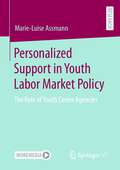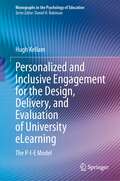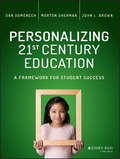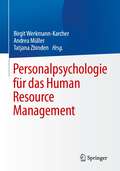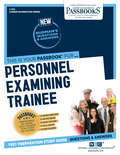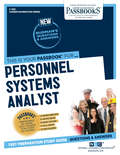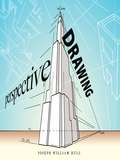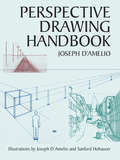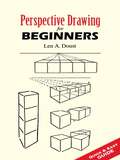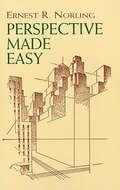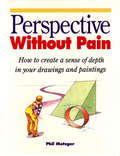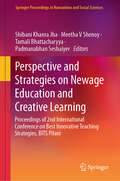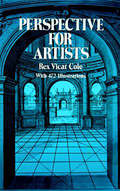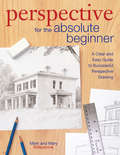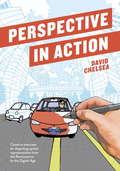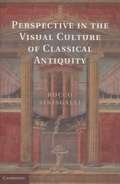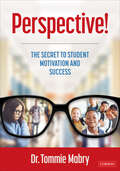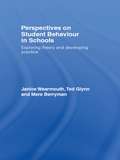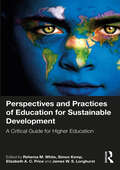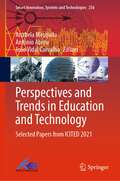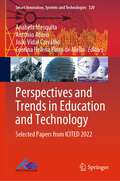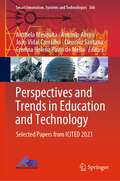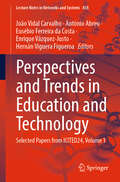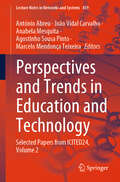- Table View
- List View
Personalized Support in Youth Labor Market Policy: The Role of Youth Career Agencies
by Marie-Luise AssmannIn the face of increasing youth unemployment across Europe, innovative approaches to youth labor market policy are crucial. One such approach is the introduction of ‘one-stop shops’ for young people. Here, employment offices and other actors, such as youth social services, cooperate to offer young people coordinated advice from a single source. The impact of their introduction upon the young people that use them is, thus far, under-researched. This study begins to fill this gap by outlining the support approach of the German ‘youth career agencies’ that centers on gaining a more complete picture of the young person’s life situation in order to offer them a range of possible support programs. The study interrogates whether the youth career agencies do offer more personalized advice for young people during their transition to employment than classical job center teams. It argues that, if the cooperative relationships between the actors involved in the youth career agencies are of good quality, more personalized support is likely to be offered there. However, personalized support in youth career agencies is still limited by the diverse specifications and target figures demanded of job centers by the Federal Employment Agency and also influenced by the professional background of the individual caseworkers.
Personalized and Inclusive Engagement for the Design, Delivery, and Evaluation of University eLearning: The P-I-E Model (Monographs in the Psychology of Education)
by Hugh KellamThe book examines the intersections of online learning theories and models in the current research literature for teaching in digital environments in postsecondary education. It describes the connection between eLearning theory and practice to develop a pragmatic and adaptable model for the design, development, and implementation of interactive, personalized, and inclusive online learning experiences. The book discusses a model with three themes – personalization, inclusiveness, engagement (the P-I-E model) – that describe facilitation techniques, instructional design methods and evaluation tools to customize eLearning for higher education students. It offers theoretical underpinnings, implementation tips, a design checklist and evaluation questions for each of the model’s sections. In addition, the book presents an implementation plan for the elements of the model based on principles of change management and program planning. The volume can be used as either a comprehensive system to design an entire online course or as a reference guide to improve selected components of an existing program.Key areas of coverage include:Review of eLearning theories.Examination of the characteristics of individual learners, professors, and class communities in online environments.Recommendations for instructional design, assessment, and evaluation for online students.Best practices for learner engagement including scheduling, communication, and user interface design.Program implementation strategies and evaluation questions for all sections of the P-I-E model.Personalized and Inclusive Engagement for the Design, Delivery, and Evaluation of University eLearning is an essential resource for instructional designers, college instructors, and university professors to create, implement, evaluate, and improve personalized and inclusive learning for postsecondary students.
Personalizing 21st Century Education
by John L. Brown Dan Domenech Morton ShermanWhat does it mean for students to be truly educated in a rapidly changing, technology-driven, and globally interconnected 21st century world? How can we ensure that every student receives a challenging, rigorous, engaging, and personalized learning experience throughout their elementary, middle, and high school years? This book explores the meaning of and a possible future direction for education in the 21st century--an education that transcends the archaic factory model of teaching and learning to which most students in public schools are still exposed. Personalizing 21st Century Education begins with a manifesto for change, emphasizing the significance of true personalization for every learner. Next, it describes classroom, school, and system-level performance indicators that suggest that personalization is alive and well. The authors examine the historical origins of most modern school cultures--i.e., a commitment to standardization, depersonalization, and test-driven metrics that ignore the complexity and totality of the whole child. Throughout the book are success stories showcasing schools and districts that are currently "beating the odds" and providing a truly personalized learning environment for their students. The authors outline key components of a personalized learning system, including: state-of-the-art curriculum balanced and authentic assessment integrated and student-focused technology rigorous and engaging instruction personalized approaches to learning addressing the needs of diverse student populations, including English Language Learners, special needs students, socio-economically disadvantaged, and transient/highly mobile learners effective and sustained social and psychological services active parent and community involvement creative and productive cross-institutional partnerships For leaders, teachers, and other stakeholders, Personalizing 21st Century Education presents a vision for an individualized educational system that transcends current factory models and prepares students to be competitive in tomorrow's global economy.
Personalpsychologie für das Human Resource Management
by Birgit Werkmann-Karcher Andrea Müller Tatjana ZbindenDieses Buch hilft Personalmanager:innen und Führungskräften dabei, die komplexen Aufgaben des Human Resource Managements im Zeichen der Arbeit 4.0 zu bewältigen. Für die Kernaufgaben der Personalarbeit bietet es einen hilfreich strukturierten Überblick mit aktuellen wissenschaftlich basierten Empfehlungen aus der Angewandten Psychologie zu Themen wie z. B.: Employer Branding und Personalmarketing, Kompetenz- und Potentialdiagnostik, Leistungssteuerung, Lernen und Laufbahnen in Organisationen, Team-, Organisations- und Kulturentwicklung. Neben HR-Grundlagen zu Rollen, Geschäftsmodellen und Personal der Zukunft bietet das Buch Tipps, Methoden und Checklisten für aktuelle Themen wie die Gestaltung hybrider Arbeit, Agilität und neue Formen von Führung, People Analytics und Green HRM.
Personnel Examining Trainee: Passbooks Study Guide (Career Examination Series)
by National Learning CorporationThe Personnel Examining Trainee Passbook® prepares you for your test by allowing you to take practice exams in the subjects you need to study. It provides hundreds of questions and answers in the areas that will likely be covered on your upcoming exam, including but not limited to: Civil Service terminology; principles and practices of customer service; understanding and interpreting written material; coding/decoding information; and more.
Personnel Systems Analyst: Passbooks Study Guide (Career Examination Series)
by National Learning CorporationThe Personnel Systems Analyst Passbook® prepares you for your test by allowing you to take practice exams in the subjects you need to study. It provides hundreds of questions and answers in the areas that will likely be covered on your upcoming exam, including but not limited to: principles of providing user support; public personnel administration; systems analysis; training users of computers; and more.
Perspective Drawing
by Joseph William HullThis richly illustrated guide to perspective drawing features 17 reproductions of ancient and modern art, plus more than 200 instructive figures. The first half encourages freehand drawing, cultivating practical exposure to the principles of perspective. The second part addresses the laws and theories that constitute the science of perspective.Encouraging students to begin immediately with pencil drawings, the first part examines the application of perspective to depicting light and shade, textured objects, and imaginary as well as existing forms. The second part deals exclusively with rules of perspective, covering a wide scope and explaining the mechanics of perspective thoroughly and yet simply. Intended as an auxiliary to the first half's drawing instructions, part two is organized for ready reference as students progress through part one.
Perspective Drawing Handbook (Dover Art Instruction Ser.)
by Joseph D'AmelioThis handy guide provides numerous insights and shortcuts to drawing and sketching effectively. Describing mandatory skills for beginning and advanced students, the text covers such subjects as diminution, foreshortening, convergence, shade and shadow, and other visual principles of perspective drawing.Accompanying a concise and thoughtfully written text are more than 150 simply drawn illustrations that depict a sense of space and depth, demonstrate vanishing points and eye level, and explain such concepts as appearance versus reality; perspective distortion; determining heights, depths, and widths; and the use of circles, cylinders, and cones.Artists, architects, designers, and engineers will find this book invaluable in creating works with convincing perspective.
Perspective Drawing for Beginners
by Len A. DoustThe amateur artist faces many challenges. To Len A. Doust, perspective is by far the most problematic. With his trademark humor, the author/artist turns his expert eye toward that "dreaded, horrid word." In a clearly written how-to guide on mastering the art of perspective, he carefully:* describes the roles of lines, boxes, and circles* provides shortcuts for visualizing shapes and forms* incorporates thirty-three plates of helpful illustrationsOne of the most concise introductions available for beginners, this practical volume will be an important addition to any artist's resource library.
Perspective Made Easy (Dover Art Instruction Ser.)
by Ernest R. NorlingPerspective, the author tells us, is easy; yet surprisingly few artists are aware of the simple rules that make it so. This easy-to-follow book -- the first devoted entirely to clarifying the laws of perspective -- remedies the situation. In it, the author uses over 250 simple line drawings to illustrate the concepts involved.Beginning with clear, concise, immediately applicable discussions of the horizon, vanishing point, and the crucial relationship of eye level to perspective drawing, you'll learn how to place figures and objects in a drawing, depict interiors, create shade and shadows, and achieve all the other elements necessary for a successful perspective drawing. By repeatedly stressing important points, Mr. Norling teaches you to make them second-nature. Moreover, his approach is so simple and direct that no matter how little raw talent or experience you have, you will soon be able to apply these techniques almost instinctively.Mastery of perspective is a basic skill every artist must have. This simple, nontechnical guide will enable you to master its essentials in a relatively short time. Clear and concise, this book is an essential addition to any artist's bookshelf.
Perspective Without Pain: The Basics (Specials Ser.)
by Phil MetzgerImagine perspective without pain-no T-squares, complicated equations or mechanical terms-just simple instructions and hands-on exercises to teach you how to create a sense of depth in your drawings and paintings. Now go a step further-imagine having fun with perspective. With this book, you will. Here Phil Metzger give you clear-cut guidelines in everyday terms-with a lot of friendliness and a little humor tossed in along the way. As an experienced artist, he understands how you work, and he knows that the last thing you need is a lot of rigid rules to tie you down. Here you'll learn techniques of perspective that will help your creativity-not hinder it. You'll learn how to: Achieve the illusion of depth by gradually diminishing the sizes of-and the distance between-similar objects Use soft edged and less detail on objects in the background to make them seem farther away Introduce depth simply by manipulating color and value Draw from any viewpoint-on either side, above or below Draw accurate angles without complicated measuring devices Use perspective to track down the problem when something you've drawn just doesn't look right Measures relative sizes and add the details that make the difference between a convincing pictures and an awkward one Properly draw roads, paths, streets, fields and streams to suggest depth in a scene and to describe the flatness or hilliness of a landscape.
Perspective and Strategies on Newage Education and Creative Learning: Proceedings of 2nd International Conference on Best Innovative Teaching Strategies, BITS Pilani (Springer Proceedings in Humanities and Social Sciences)
by Shibani Khanra Jha Meetha V Shenoy Tamali Bhattacharyya Padmanabhan SeshaiyerThis book presents the proceedings of the International Conference on Best Innovative Teaching Strategies (ICOBITS) at BITS Pilani on Feb 9-11, 2023. It brings together global academicians, researchers, and industry experts to delve into innovative teaching-learning practices. Meticulously selected and reviewed by professionals, the proceedings offer cross-cutting perspectives and strategies in education and creative learning. It is organized into four parts and covers Innovative Pedagogical Practices for Technology Enhanced Learning, Technology, Society and Industry in Higher Education, STEM Education and Cultural Studies, Gender Studies and Sustainability in Higher Education. It provides insights into assessment tools for effectively evaluating the efficiency of teaching methods. Part one explores ICT, digital classrooms, metaverse-based teaching, gamification, and AI-ML-based practices. Part two delves into the humanistic approach in technical education, social networking as an educational tool, and outcome-based assessment needs. Part three addresses future educators' requirements through multidisciplinary collaboration in STEM education. Part four discusses gender equity, structured social inclusion and cultural skills in teaching-learning practices. This book is a valuable resource for academicians, researchers, policymakers, administrators, technocrats, and developers actively engaged in education technology across disciplines such as Engineering, Sciences, Management, Humanities, and Social Sciences.
Perspective for Artists (Dover Art Instruction Ser.)
by Rex Vicat ColeRex Vicat Cole makes learning about perspective an enjoyable and fascinating pursuit in this clearly written and profusely illustrated book. Over 390 diagrams illustrate every aspect of the text, and more than 80 illustrations reproduce drawings and paintings — by old masters and by the author — that indicate how perspective is utilized in practice. The book is so well illustrated that many perspective problems can be answered without reference to the text at all. The text itself clarifies the theory of perspective and offers numerous practice exercises. Among the topics covered are the principle of perspective in theory, the rules of perspective and their application, depths, the use of plans in sketching foreshortened surfaces, inclined planes, the circle, arches, how to draw curves by straight lines, perspective of the sky and sea, perspective of shadows, and more. Two additional sections cover perspective in the history of art and mechanical perspective.A noted landscape painter and art instructor, Mr. Cole combines common sense with an understanding of Nature's laws to make perspective a subject that every artist can approach with confidence. Art students will also find this book extremely valuable.
Perspective for the Absolute Beginner: A Clear and Easy Guide to Successful Perspective Drawing
by Mary Willenbrink Mark WillenbrinkPerspective made simple. How to draw in a realistic style. Perspective is arguably the most important element of drawing and also one of the most difficult to master. It's what gives drawings dimension and is the key to realistic drawing. Now the best-selling authors of Drawing for the Absolute Beginner are here to demystify perspective, simplify concepts such as vanishing points and multi-point perspective, and make it easy for you to experience success...and have fun while you're doing it.Tricks and techniques for creating depth and dimension using lines (linear perspective), values (atmospheric perspective) and color.23 mini demonstrations on how to apply basic principles of perspective make getting started easy.12 full step-by-step demonstrations, each with a structural drawing, cover a variety of subjects, including interiors, architecture and still lifes.Starting with a simple box to illustrate fundamental concepts, artists will develop a working understanding of how to cast any subject in realistic depth and dimension. This book puts it all into perspective.
Perspective in Action: Creative Exercises for Depicting Spatial Representation from the Renaissance to the Digital Age
by David ChelseaUsing a fun and accessible graphic novel format, Perspective in Action features 33 easy-to-follow demonstrations to teach artists the major discoveries in perspective. Perspective is a fundamental element in the development of art and for understanding spatial relationships, but it is an underserved topic in the world of art instruction. Author and artist David Chelsea takes readers through the major perspective-related developments in history, teaching them how to re-create these same experiments by leading artists in all fields (including drawing, painting, and sculpture). Covering a wide-range of mediums (pen and ink, paint, chalk, digital art, woodwork, and more), Perspective in Action gives readers a more hands-on approach to perspective, as opposed to the usual theoretical presentations found in other books.
Perspective in the Visual Culture of Classical Antiquity
by Rocco SinisgalliLinear perspective is a science that represents objects in space upon a plane, projecting them from a point of view. This concept was known in classical antiquity. In this book, Rocco Sinisgalli investigates theories of linear perspective in the classical era. Departing from the received understanding of perspective in the ancient world, he argues that ancient theories of perspective were primarily based on the study of objects in mirrors, rather than the study of optics and the workings of the human eye. In support of this argument, Sinisgalli analyzes, and offers new insights into, some of the key classical texts on this topic, including Euclid's De speculis, Lucretius' De rerum natura, Vitruvius' De architectura, and Ptolemy's De opticis. Key concepts throughout the book are clarified and enhanced by detailed illustrations.
Perspective!: The Secret to Student Motivation and Success
by Tommie MabryUnderstand Where Your Students are Coming From! The factors that influence students’ beliefs and attitudes about the value of formal education are complex and expansive, especially with respect to marginalized student populations. Motivational speaker and master storyteller Dr. Tommie Mabry builds from personal experiences as a child labeled "at risk" to promote empathy and understanding in motivating the success of youth. Written in a clear style, this practical guide leads educators through shifting student perspectives on the value and benefits of formal schooling, beginning first with teacher self-examination of their own perspectives. Perspective is a holistic construct that encompasses mindset, emotions, effort, and outcomes. Layered with effective methodologies, chapters address a range of critical topics important to this view of perspective, including extensive information on Building positive relationships Drawing on educators’ empathic capacity Engendering trust Practicing culturally responsive teaching Igniting students’ passions Written with an emphasis on marginalized students and adverse childhood experiences, the concepts and strategies are applicable across all student populations.
Perspective!: The Secret to Student Motivation and Success
by Tommie MabryUnderstand Where Your Students are Coming From! The factors that influence students’ beliefs and attitudes about the value of formal education are complex and expansive, especially with respect to marginalized student populations. Motivational speaker and master storyteller Dr. Tommie Mabry builds from personal experiences as a child labeled "at risk" to promote empathy and understanding in motivating the success of youth. Written in a clear style, this practical guide leads educators through shifting student perspectives on the value and benefits of formal schooling, beginning first with teacher self-examination of their own perspectives. Perspective is a holistic construct that encompasses mindset, emotions, effort, and outcomes. Layered with effective methodologies, chapters address a range of critical topics important to this view of perspective, including extensive information on Building positive relationships Drawing on educators’ empathic capacity Engendering trust Practicing culturally responsive teaching Igniting students’ passions Written with an emphasis on marginalized students and adverse childhood experiences, the concepts and strategies are applicable across all student populations.
Perspectives on Student Behaviour in Schools: Exploring Theory and Developing Practice
by Janice Wearmouth Mere Berryman Ted GlynnThe authors of this comprehensive text discuss the root causes of disruptive behaviour, tackle assessment issues and develop effective intervention strategies that will be of practical use to teachers and other educators. Whilst theorising behaviour management from a range of perspectives: psychodynamic, behavioural and socio-cultural, the authors remain firmly focused on practical issues of policy making, assessment and intervention, and address a wide range of related issues, such as: policy in relation to behaviour in schools at local authority, national and international level cultural concerns, race, gender, school discipline and exclusion medical perspectives of topical interest such as ADHD, autism and diet assessment at district, community, classroom and individual level, and how these underpin theory. This book will appeal to anyone for whom behaviour in schools is a key concern, such as student teachers, teacher educators, senior school managers and practising teachers undertaking further study in the field.
Perspectives and Practices of Education for Sustainable Development: A Critical Guide for Higher Education
by Simon Kemp Rehema M. White Price, Elizabeth A. C. Longhurst, James W. S.Informed by theory and full of practical advice, this key title offers a clear route to education for sustainable development (ESD) whilst questioning how we reconcile participatory, inclusive processes and the urgency of global crises.This handbook provides guidance for those with an interest in the purpose and direction of learning and the principles and practices of sustainability in universities in the UK and beyond. With critical analysis and useful case studies and recommendations, the book covers key topics such as: The need for sustainable development and the role that universities can play in this Showing how ESD should be part of a whole institution approach Development of relevant curricula with innovative and inspiring pedagogies to support sustainability competencies Transdisciplinary learning and pioneering forms of knowledge production Graduate futures and emerging priorities in the field of ESD Through detailed case studies from experts in the field, this book demonstrates how ESD enables a critical interrogation of our world and strengthens the capacities of our universities to nurture future thinking leaders.This is essential reading for all those interested in beginning or widening ESD in programmes, universities and the wider sector, including academic staff, university senior managers and support staff, students, policy makers, employers, and community leaders.
Perspectives and Trends in Education and Technology: Selected Papers from ICITED 2021 (Smart Innovation, Systems and Technologies #256)
by Anabela Mesquita António Abreu João Vidal CarvalhoThis book presents high-quality, peer-reviewed papers from the International Conference in Information Technology & Education (ICITED 2021), to be held at the ESPM – Higher School of Advertising and Marketing, Sao Paulo, Brazil, between the 15th and the 17th of July 2021. The book covers a specific field of knowledge. This intends to cover not only two fields of knowledge – Education and Technology – but also the interaction among them and the impact/result in the job market and organizations. It covers the research and pedagogic component of Education and Information Technologies but also the connection with society, addressing the three pillars of higher education. The book addresses impact of pandemic on education and use of technology in education. Finally, it also encourages companies to present their professional cases which is discussed. These can constitute real examples of how companies are overcoming their challenges with the uncertainty of the market.
Perspectives and Trends in Education and Technology: Selected Papers from ICITED 2022 (Smart Innovation, Systems and Technologies #320)
by Anabela Mesquita António Abreu João Vidal Carvalho Cristina Helena Pinto de MelloThis book presents high-quality, peer-reviewed papers from the International Conference in Information Technology & Education (ICITED 2022), to be held at the ESPM – Higher School of Advertising and Marketing, Rio de Janeiro, Brazil, between July 14 – 16, 2022. This book covers a specific field of knowledge. This intends to cover not only two fields of knowledge – Education and Technology – but also the interaction among them and the impact/result in the job market and organizations. It covers the research and pedagogic component of Education and Information Technologies and also the connection with Society, addressing the three pillars of higher education. This book addresses impact of pandemic on education and use of technology in education. Finally, it also encourages companies to present their professional cases which will be discussed. These can constitute real examples of how companies are overcoming their challenges with the uncertainty of the market.
Perspectives and Trends in Education and Technology: Selected Papers from ICITED 2023 (Smart Innovation, Systems and Technologies #366)
by Anabela Mesquita António Abreu João Vidal Carvalho Cristina Helena Pinto de Mello Cleuciliz SantanaThis book presents high-quality, peer-reviewed papers from the International Conference in Information Technology & Education (ICITED 2023), to be held at the Nilton Lins University, Manaus, Brazil, during June 29–30, 2023. The book covers a specific field of knowledge. This intends to cover not only two fields of knowledge—Education and Technology—but also the interaction among them and the impact/result in the job market and organizations. It covers the research and pedagogic component of Education and Information Technologies but also the connection with Society, addressing the three pillars of higher education. The book addresses impact of pandemic on education and use of technology in education. Finally, it also encourages companies to present their professional cases which will be discussed. These can constitute real examples of how companies are overcoming their challenges with the uncertainty of the market.
Perspectives and Trends in Education and Technology: Selected Papers from ICITED24, Volume 1 (Lecture Notes in Networks and Systems #858)
by António Abreu João Vidal Carvalho Eusébio Ferreira da Costa Enrique Vázquez-Justo Hernán Viguera FigueroaThis book from the LNNS Series is composed of the best selected papers accepted for presentation and discussion at the 2024 International Conference in Information Technology & Education (ICITED’24). The ICITED is a multidisciplinary conference with a special focus on new Technologies and Systems in the Education sector and was held between July 11 and 13, 2024. The ICITED’24 was supported by the Pernambuco University, Recife, Brazil, and by IADITI—International Association for Digital Transformation and Technological Innovation. The International Conference in Information Technology & Education is an international forum for researchers and professionals in the education sector, which enables the discussion of the latest innovations, trends, and concerns in several areas, in the education sector, associated with information technologies and systems. It is an event for professionals in the sector, in search of technology solutions, where academics, IT experts, and business managers meet to discuss new ideas that help them maximize the potential of learning processes through technology. The ICITED’24 Scientific Committee is composed of a multidisciplinary group of 143 experts who assessed some 262 papers from 26 countries, received for each of the main topics proposed for the conference. The papers accepted for presentation and discussion at the conference are published by Springer and will be submitted for indexing by ISI, SCOPUS, EI-Compendex, Google Scholar, and SpringerLink.
Perspectives and Trends in Education and Technology: Selected Papers from ICITED24, Volume 2 (Lecture Notes in Networks and Systems #859)
by Anabela Mesquita António Abreu João Vidal Carvalho Agostinho Sousa Pinto Marcelo Mendonça TeixeiraThis book from the LNNS Series is composed of the best selected papers accepted for presentation and discussion at the 2024 International Conference in Information Technology & Education (ICITED’24). The ICITED is a multidisciplinary conference with a special focus on new Technologies and Systems in the Education sector and was held between July 11 and 13, 2024. The ICITED’24 was supported by the Pernambuco University, Recife, Brazil, and by IADITI—International Association for Digital Transformation and Technological Innovation. The International Conference in Information Technology & Education is an international forum for researchers and professionals in the education sector, which enables the discussion of the latest innovations, trends, and concerns in several areas, in the education sector, associated with information technologies and systems. It is an event for professionals in the sector, in search of technology solutions, where academics, IT experts, and business managers meet to discuss new ideas that help them maximize the potential of learning processes through technology. The ICITED’24 Scientific Committee is composed of a multidisciplinary group of 143 experts who assessed some 262 papers from 26 countries, received for each of the main topics proposed for the conference. The papers accepted for presentation and discussion at the conference are published by Springer and will be submitted for indexing by ISI, SCOPUS, EI-Compendex, Google Scholar, and SpringerLink.
